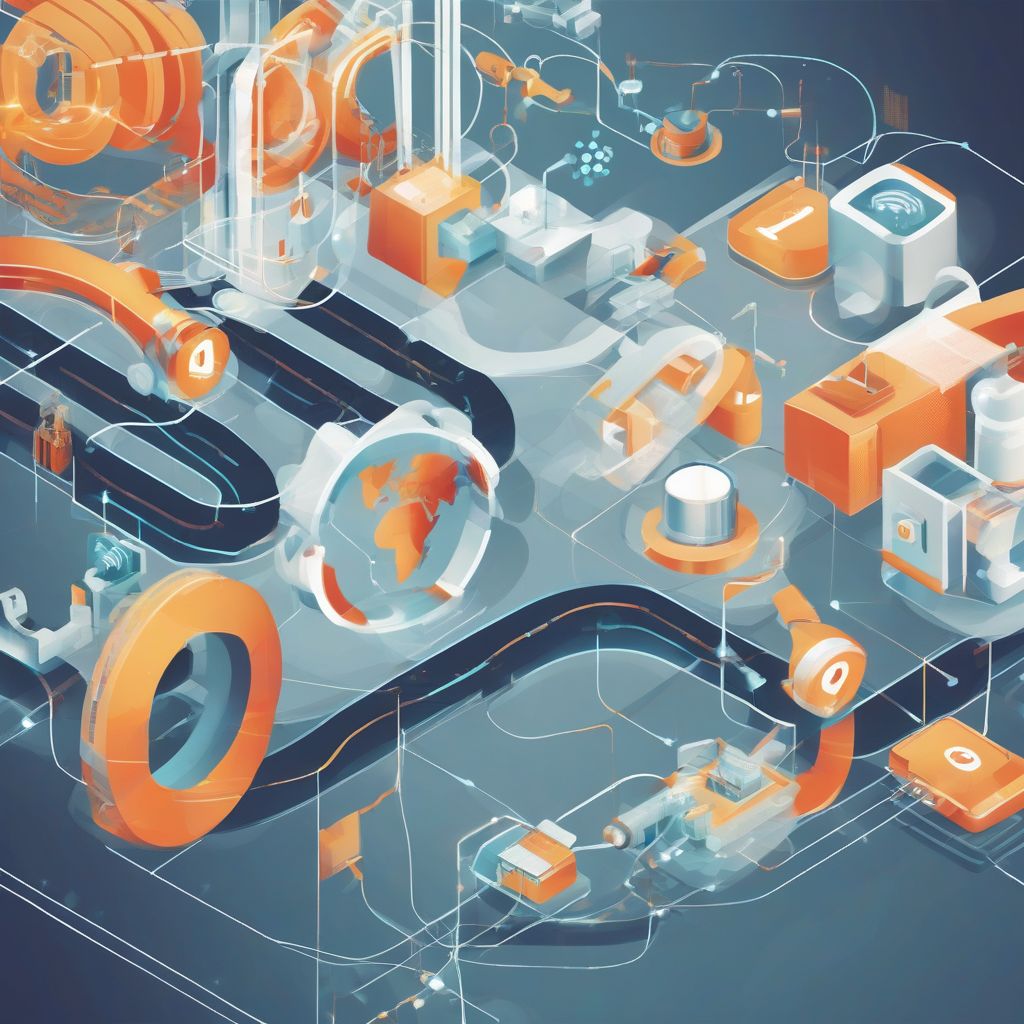Streamlining Success: ERP Software in the Manufacturing Industry
The manufacturing industry is a complex ecosystem of processes, resources, and people. To remain competitive in today’s global market, manufacturers must optimize their operations for maximum efficiency, productivity, and profitability. This is where Enterprise Resource Planning (ERP) software emerges as a game-changer. ERP software for the manufacturing industry provides an integrated suite of applications designed to manage and automate core business functions, creating a seamless flow of information across the entire organization.
Understanding ERP Software in Manufacturing
At its core, ERP software for manufacturing acts as a centralized hub for all business data, connecting departments and streamlining workflows. Instead of operating in silos, departments like sales, purchasing, inventory, production, and finance can access and share real-time information. This eliminates data redundancy, reduces errors, and enables data-driven decision-making.
But what sets manufacturing ERP apart from general ERP solutions? The answer lies in specialized features tailored to the unique needs of the industry:
Key functionalities of ERP software in manufacturing include:
- Production Planning: ERP systems enable manufacturers to create detailed production plans based on sales orders, inventory levels, and resource availability. They help optimize production schedules, minimize downtime, and ensure on-time delivery.
- Inventory Management: Maintaining optimal inventory levels is crucial. ERP software provides real-time visibility into inventory across multiple locations, tracks raw materials, work-in-progress goods, and finished products, and automates inventory replenishment.
- Supply Chain Management: From procurement to delivery, ERP systems streamline the supply chain. They manage vendor relationships, automate purchase orders, track shipments, and provide insights to optimize logistics.
- Cost Accounting: Accurately tracking costs is vital in manufacturing. ERP software helps monitor production costs, overhead expenses, and labor costs, giving manufacturers a clear picture of profitability.
- Quality Management: Meeting quality standards is paramount. Manufacturing ERP solutions often include modules for quality control, enabling manufacturers to track defects, manage non-conformance reports, and implement corrective actions.
Why is ERP Software Essential for Manufacturing?
The benefits of implementing ERP software in manufacturing extend far beyond simple data management. Let’s delve into some of the key advantages:
1. Enhanced Efficiency and Productivity
- Automated Processes: ERP systems automate repetitive tasks, freeing up employees to focus on more strategic initiatives.
- Improved Collaboration: Real-time data sharing fosters better communication and collaboration between departments.
- Reduced Lead Times: Streamlined workflows and optimized production schedules lead to faster production cycles and shorter lead times.
2. Cost Reduction and Increased Profitability
- Optimized Inventory: ERP systems help manufacturers minimize inventory carrying costs by preventing overstocking and stockouts.
- Improved Resource Utilization: Effective resource planning ensures that equipment, materials, and labor are used optimally, reducing waste.
- Data-Driven Decisions: Real-time insights into key metrics allow for more informed and profitable business decisions.
3. Enhanced Customer Satisfaction
- On-Time Delivery: Efficient production planning and inventory management enable manufacturers to consistently meet delivery deadlines.
- Order Accuracy: Integrated systems reduce the risk of errors, ensuring that orders are fulfilled accurately.
- Improved Customer Service: With all customer information readily available, manufacturers can provide better and more responsive customer service.
Key Considerations When Choosing ERP Software
Selecting the right ERP software is a critical decision for any manufacturing business. Here are some essential factors to keep in mind:
1. Industry-Specific Functionality:
Not all ERP systems are created equal. It’s crucial to choose a solution with features and modules specifically designed for the manufacturing industry.
2. Deployment Options:
ERP software can be deployed on-premises, in the cloud, or in a hybrid model. Consider factors such as IT infrastructure, budget, and the level of control required.
3. Scalability and Flexibility:
As your business grows, your ERP system should be able to scale accordingly. Choose a solution that can adapt to your changing needs.
4. Integration Capabilities:
Ensure that the ERP software can seamlessly integrate with existing systems, such as CRM and e-commerce platforms.
5. Vendor Expertise:
Look for an ERP vendor with a proven track record in the manufacturing industry and strong customer support.
Conclusion
In today’s hyper-competitive manufacturing landscape, ERP software has become a necessity rather than a luxury. It empowers manufacturers to optimize their operations, reduce costs, enhance productivity, and gain a competitive edge. By carefully considering their specific needs and choosing the right ERP solution, manufacturers can pave the way for sustained growth and success.



Leave a Comment